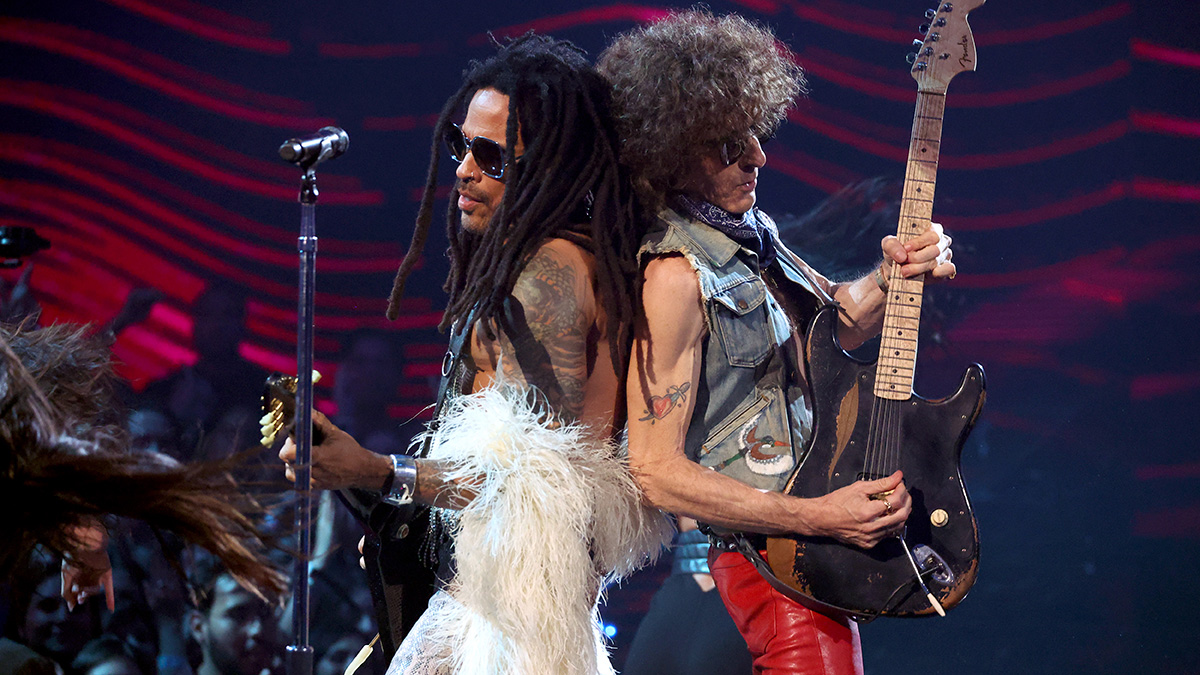“We had 15 minutes left, and it was time to go… I just started playing that riff. Then Lenny goes, ‘Whoa, what’s that?’” Lenny Kravitz guitarist Craig Ross reveals the serendipitous roots of a Kravitz classic
Turns out you can write a career-defining hit – and solo – at the very end of a recording session...

Craig Ross grew up on a diet of Chuck Berry, The Beatles, Hendrix, Zeppelin, The Who, and Freddie King – before cutting his teeth playing the Los Angeles nightclub circuit and opening for Guns N' Roses and Jane's Addiction with his band Broken Homes.
However, it was a chance meeting with Lenny Kravitz at a pool hall in Hollywood – with a little help from Kathy Valentine – that would completely change the course of his career and life forever.
Serendipity seems to follow Kravitz and Ross – as serendipitous is the only way to describe the making of their smash 1993 hit Are You Gonna Go My Way.
“Lenny was producing a record for this girl named Vanessa Paradis, who is a French singer, and we were in the middle of doing a record for Lenny and a record for her,” Ross tells Chris Schiflett on the Shred with Shifty podcast.
“That particular day we were trying to put together this song for her. Lenny was buying session time, so we were almost at the end of the day. We had to get out of there in like an hour, and we were trying to record this song.”
He continues, “I had an amp, and I think I had a Strat originally, and I just started playing that riff. Then he goes, ‘Whoa, what's that?’ And I said, ‘I don't know. I just started feeling that.’ And he felt it too. So he was like, ‘Oh, cool. Well, why don't you put on a Les Paul [Kravitz's ’53 Goldtop conversion] and try it that way?’ And then pretty much half an hour later, we had it cut.”
Ross recalls how he and Kravitz were jamming on the idea, on guitar and drums respectively – alongside Kravitz's bass player at the time, Tony Breit, who was also playing along.
Get The Pick Newsletter
All the latest guitar news, interviews, lessons, reviews, deals and more, direct to your inbox!
Once they recorded the whole track, all the way to the end, they only had a few minutes left of the session. It was then that Ross made the quick decision to add another part to it – what turned out to be the track's iconic, Cream-era Clapton-inspired solo.
“We had 15 minutes left, and it was time to go,” he recounts. “But the amp [a little Gibson Skylark] was set up and the mic was set up, and I said, ‘Look, can I go and just put another part on top real quick?’ And all I meant to do was the octave.
“But I just said to myself, ‘I'll just play a solo, and they can always erase it.’ Then, [I] finished the take, and went in the control room, and they were like, ‘That was a cool guitar solo.’ So that whole thing was just the one take, from beginning till the end.”
Last year, Kravitz released his twelfth studio album, the genre-blending Blue Electric Light, on which he also employed his “number one studio Les Paul” – the ’53 Gibson Goldtop conversion.
Janelle is a staff writer at GuitarWorld.com. After a long stint in classical music, Janelle discovered the joys of playing guitar in dingy venues at the age of 13 and has never looked back. Janelle has written extensively about the intersection of music and technology, and how this is shaping the future of the music industry. She also had the pleasure of interviewing Dream Wife, K.Flay, Yīn Yīn, and Black Honey, among others. When she's not writing, you'll find her creating layers of delicious audio lasagna with her art-rock/psych-punk band ĠENN.
You must confirm your public display name before commenting
Please logout and then login again, you will then be prompted to enter your display name.












